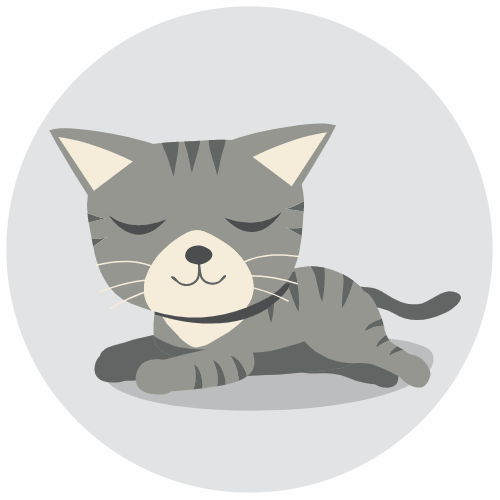A new puppy or kitten is an exciting addition to any family, and we look forward to meeting yours! Pets need a lot of care and attention in their first year of life, because they may be vulnerable to illness, and we want to help them develop into healthy, happy adults. World of Animals Veterinary Hospital in Philadelphia can provide thorough puppy and kitten exams, vaccine schedules, deworming treatments, and more to give your new furry bundle the best start in life.
Your Puppy or Kitten’s First Visit
We recommend a series of wellness visits for your puppy or kitten in their first year, ideally starting at 6-8 weeks old. At this stage, we can meet your new pet, perform an exam, check for parasites, and begin their first booster shots. Their appointment will also expose your pet to new sights, sounds, and smells.
The primary aspects of your puppy’s or kitten’s first visit include:
- A head-to-tail examination
- A fecal examination to check for parasites
- Deworming (if needed) to treat parasites
- Administration of first booster shot (Distemper for dogs, FVRCP for cats)
- Administration of parasite preventative
- A detailed discussion about your pet’s nutrition, potty training, future vaccinations, and spay/neuter options
First Exams/Vaccinations
EXAM ONE
Your pet’s first exam with us is when you initially bring them in. Frequently we will see puppies/kittens around 8 weeks old.
Kitten Vaccines
- FVRCP (Feline Viral Rhinotrachetitis, Calici virus, Panleukopenia) #1
- Deworming #1
Puppy Vaccines
- DA2PP (Distemper, Adenovirus, Parvovirus and Parainfluenza)
- Deworming
EXAM TWO
Our recheck exam is usually for pets near 12 weeks old and is an important exam to assess the growth of your pet.
Kitten Vaccines
- FVRCP (Feline Viral Rhinotrachetitis, Calici virus, Panleukopenia)
- Deworming
Puppy Vaccines
- DA2PP (Distemper, Adenovirus, Parvovirus and Parainfluenza)
- Lepto
- Bordetella
- Final Deworming
EXAM THREE
The next exam takes place when they are 16 weeks old. Your doctor will assess their growth and health, finalize their immunization, and begin discussing the next steps as your pet becomes an adult.
Kitten Vaccines
- FVRCP (Feline Viral Rhinotrachetitis, Calici virus, Panleukopenia)
- FeLV (Feline Leukemia Virus)
- Rabies
Puppy Vaccines
- DA2PP (Distemper, Adenovirus, Parvovirus and Parainfluenza)
- Lepto
- Bordetella
- Rabies

Why It’s Important to Spay & Neuter
Our veterinarians routinely perform spay and neuter surgeries for dogs and cats. This is a key topic, because spaying and neutering plays an important role in the development and continued health of our pet patients. We invite any questions you may have about spaying and neutering and encourage you to click below for more information.
How do I set a potty-training schedule?
To establish a potty-training schedule, we recommend letting your puppy out at the following times:
- First thing in the morning when you get up
- At night, before going to bed
- After they’ve been in their crate
- As soon as they wake up from a nap
- After they’ve eaten, or drunk water
- Time between bathroom breaks should not exceed 2-4 hours
Crate training your puppy
- Keep their “home” areas clean and tidy so they’re less likely to have an accident
- Place your puppy’s crate close to an exterior door so they can be let out quickly
- Make sure your puppy’s crate is comfortable for them, with enough room to stand up and turn around
How to reinforce good behavior
- Never scold your puppy when they have an accident
- Praise them when they do the right thing
- When you reward them, do so with pats, treats, and attention
How Do I Stop Bad Puppy Behaviors?
Make sure they have something to chew on
- Chewing can be calming for puppies, so make sure they have an appropriate toy to chew on
- If possible, keep multiple chew toys throughout the house
- Praise your puppy when they chew on their toys, instead of furniture or other household objects
Keep your puppy’s barking under control
- Avoid scolding your puppy when they bark (this can make it worse)
- Ignore the barking and praise your puppy when they are quiet
- Train your puppy to sit still, as this can help them resist the impulse to bark
Keep your puppy from begging at the table
- Try feeding your puppy first, before you and your family sit down to eat
- Praise your puppy when they don’t beg at the table
- Make a comfy spot for your puppy a reasonable distance from the table
Tips for Feeding Your Puppy
How frequently should I feed my puppy?
- Talk to your veterinarian to find out how frequently your puppy should be fed
- Generally, puppies can be fed on this schedule in their first year of life:
- 6-12 weeks old: 4x a day
- 3-6 months old: 3x a day
- 6-12 months old: 2x a day
- A year old and up: 2 half portions a day
What food does my puppy need?
- Ask your vet for tailored nutritional recommendations for your puppy
- Always consider age- and health-specific formulas
- Check AAFCO guidelines
Foods that can be harmful to your puppy
- Dairy (milk, butter, rich cheese)
- Chocolate
- Grapes/raisins
- Garlic
- Onions
- Anything rich in sugar and fat
Important items to buy for your new kitten
- Litter boxes
- A sturdy, appropriately sized cat carrier
- Toys
- Scratch posts
- Stainless steel food and water bowls
What should I remove for my kitten’s safety?
- Toxic plants (lilies, sago palm)
- Toxic cleaners and sprays (always keep these out of reach)
- Any objects that could be a choking hazard if swallowed
Items to keep your kitten comfortable
- A soft cat bed and blanket
- A small, cozy space (like a sleeping cube or basket your kitten can hide in)
- Grooming supplies (brush, nail clippers, tooth brush and cat tooth paste)
- Artificial pheromone products to maintain a calm space for your pet
How to Play with Your Kitten
Play safely with the right toys
- Use toys designed specifically for cats, like balls, jingle toys, small plushes, and cotton chew toys
- Avoid using your hands as play things for your kitten, as your kitten could become nippy
Why it’s important to play with your kitten
- It can help to strengthen the bond you share with your kitten
- It allows your kitten to release pent-up energy they might otherwise spend on scratching furniture or knocking things over
- Keeps your kitten/cat active and stimulated
- It helps to build trust with you and your family, and makes your kitten feel more at home
How often you should play with your kitten
- Kittens/cats should get at least 20 minutes of playtime per day
- We recommend setting aside 2 individual playtimes during the day, such as once in the morning and once at night
Tips for Feeding Your Kitten Properly
How frequently should my kitten be fed?
- Your vet can make the best dietary recommendations for your kitten, including how frequently they should be fed
- If your kitten is on wet food, they should be fed roughly 4 separate times throughout the day
- Dry food should not be left out all day, but it can be left out for a few hours if your cat prefers to graze
How do I pick the right diet for my kitten?
- Talk to your vet for tailored food recommendations
- Select food based on quality and age- and health-specific formulas
- Consult AAFCO guidelines
Foods that are harmful to your kitten
- Grapes/raisins
- Chocolate
- Dairy
- Garlic/onions
- Anything sugary/fatty
- Raw meats, eggs, and fish




